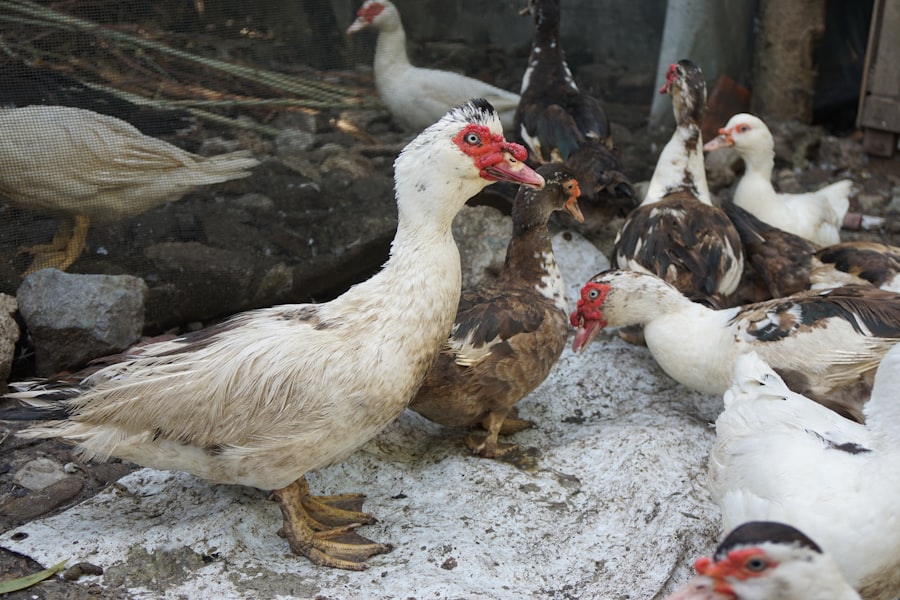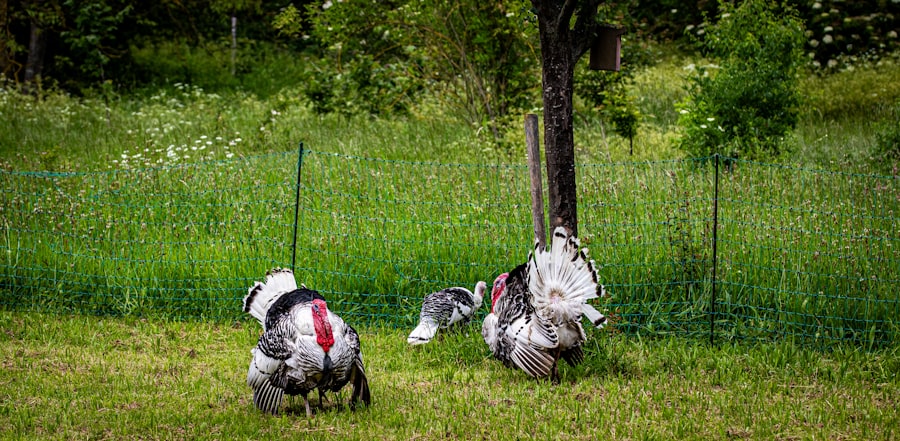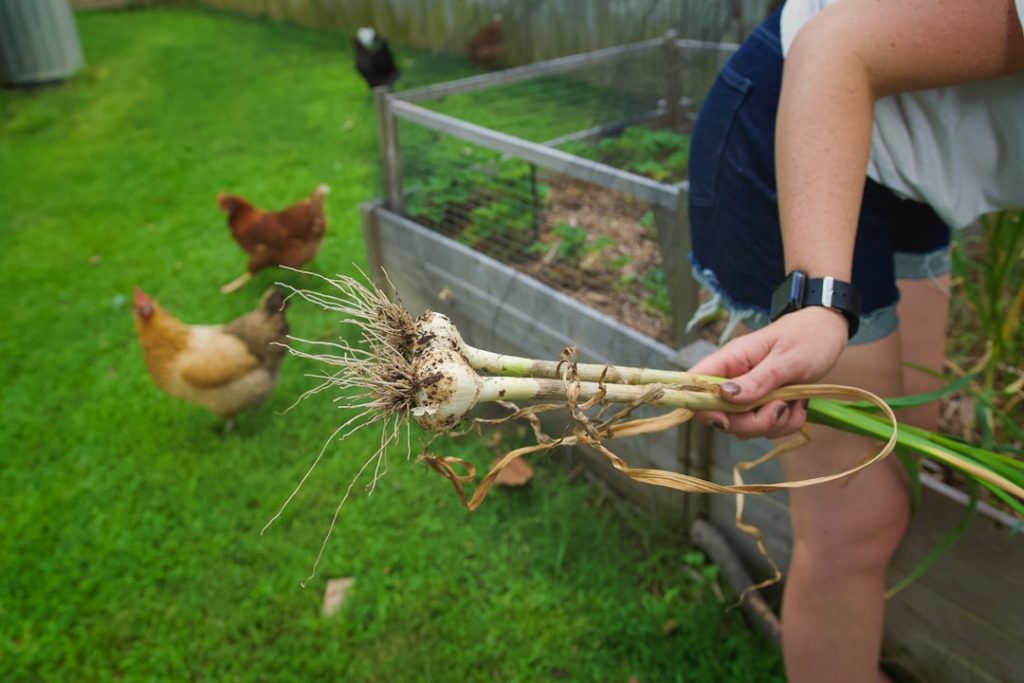Raising chickens offers numerous advantages for individuals seeking a sustainable lifestyle or companionship from poultry. The primary benefits include a consistent supply of fresh eggs, natural pest control in gardens and yards, and the production of organic fertilizer. Chickens can also serve as engaging pets, each displaying distinct personality traits.
However, chicken husbandry demands considerable time, effort, and dedication. Prospective chicken owners should thoroughly research and understand the fundamentals of poultry care before embarking on this endeavor. This includes knowledge of proper housing, nutrition, health management, and local regulations regarding backyard poultry.
Adequate preparation and commitment are essential for successfully integrating chickens into one’s life and reaping the full benefits of chicken ownership.
Table of Contents
Key Takeaways
- Raising chickens can be a rewarding experience for both beginners and experienced farmers.
- Proper preparation is key to ensuring the health and safety of your chickens upon their arrival.
- Chickens should be kept indoors for 6-8 weeks to acclimate to their new environment and develop feathers.
- Signs that your chickens are ready for the coop include fully feathered bodies and a strong desire to explore outside.
- Transitioning your chickens to the coop should be done gradually, allowing them to adjust to their new surroundings at their own pace.
Preparing for the Arrival of Your Chickens
Setting Up a Suitable Coop
The coop should be secure from predators and provide enough space for the number of chickens you plan to keep. It’s crucial to set up a suitable housing area that meets the needs of your feathered friends.
Providing Essential Supplies
You’ll need to have a good supply of chicken feed, as well as a water source that is easily accessible to the birds. Additionally, consider the bedding material for the coop, as well as any additional accessories such as nesting boxes and perches.
Ensuring a Comfortable Environment
Taking the time to prepare a comfortable and safe environment for your chickens will help ensure their health and well-being from the moment they arrive. By considering all the necessary elements, you can create a happy and thriving home for your new feathered friends.
How Long to Keep Chickens Indoors

After bringing your chickens home, it’s important to keep them indoors for a period of time to allow them to acclimate to their new environment. This period can vary depending on the age of the chickens and the weather conditions at the time. Young chicks will need to be kept indoors for several weeks until they are fully feathered and able to regulate their body temperature.
Older chickens may only need to be kept indoors for a few days to a week to adjust to their new surroundings. Additionally, if the weather is particularly cold or wet, it may be necessary to keep the chickens indoors for a longer period of time until conditions improve. Keeping the chickens indoors initially helps them become familiar with their new home and reduces the risk of them wandering off or becoming disoriented.
Signs Your Chickens are Ready for the Coop
Once your chickens have had time to adjust to their new surroundings, it’s important to watch for signs that they are ready to be transitioned to the coop. One of the most obvious signs is when the chickens start to show an interest in exploring outside of their indoor space. They may become more vocal or restless, and may even start pecking at the door or windows in an attempt to get out.
Additionally, if the weather is mild and the chickens are fully feathered, they may start to exhibit behaviors such as sunbathing or dust bathing, which are natural activities for chickens when they are outdoors. It’s important to pay attention to these cues and ensure that the chickens are ready for the transition before moving them to the coop.
Transitioning Your Chickens to the Coop
When it’s time to transition your chickens to the coop, it’s important to do so gradually and carefully. Start by allowing the chickens access to an enclosed outdoor area during the day, while still bringing them back inside at night. This will give them a chance to become familiar with their new surroundings and establish a routine before being left outside overnight.
Once they are comfortable with this arrangement, you can begin leaving them outside during the night as well. It’s important to monitor the chickens closely during this transition period to ensure that they are adjusting well and not experiencing any stress or discomfort. Providing plenty of food, water, and shelter in the outdoor area will help make the transition smoother for the chickens.
Tips for a Smooth Transition

Gradual Introduction to the Outdoors
One important tip to ensure a smooth transition for your chickens is to gradually introduce them to their new outdoor environment. Allow them supervised access to the outdoor area at first, giving them a chance to become familiar with their surroundings and establish a sense of security before being left outside unsupervised.
Creating a Safe and Secure Environment
Providing plenty of hiding spots and perches in the outdoor area can help the chickens feel safe and secure as they adjust to their new surroundings. This will give them a sense of comfort and reduce stress as they explore their new environment.
Monitoring Weather Conditions
It’s also crucial to monitor the weather conditions during this time and ensure that the chickens have adequate protection from extreme temperatures or inclement weather. This will prevent any potential health risks and ensure a stress-free transition.
By taking these steps, you can help ensure that your chickens have a positive and stress-free transition to their new outdoor home.
Monitoring Your Chickens in the Coop
Once your chickens have been successfully transitioned to the coop, it’s important to continue monitoring them regularly to ensure their health and well-being. This includes checking on their food and water supply daily, as well as keeping an eye out for any signs of illness or injury. Additionally, it’s important to keep the coop clean and free from any potential hazards such as sharp objects or toxic substances.
Regularly inspecting the coop for signs of wear and tear, as well as making any necessary repairs or improvements, will help ensure that your chickens have a safe and comfortable living environment. By staying vigilant and proactive in monitoring your chickens in the coop, you can help ensure that they thrive and continue to provide you with fresh eggs and companionship for years to come.
If you’re considering raising chickens, you may also be interested in learning about the incubation period for goose eggs. Poultry Wizard has a helpful article on this topic, which can be found here. Understanding the incubation period is crucial for successfully hatching goose eggs, just as knowing how long to keep chickens before moving them to a coop is important for their overall well-being.
FAQs
What is the ideal age to move chickens to a coop?
The ideal age to move chickens to a coop is around 6-8 weeks old. At this age, they are fully feathered and better equipped to regulate their body temperature.
How long should chickens be kept indoors before moving to a coop?
Chickens should be kept indoors for about 6-8 weeks before being moved to a coop. This allows them to grow feathers and develop the ability to regulate their body temperature.
What factors should be considered before moving chickens to a coop?
Before moving chickens to a coop, factors such as the weather, predator protection, and the size and layout of the coop should be considered. It’s important to ensure that the chickens will be safe and comfortable in their new environment.
What are the benefits of moving chickens to a coop at the right age?
Moving chickens to a coop at the right age allows them to acclimate to their new environment and establish a routine. It also provides them with the space and protection they need to thrive and stay healthy.
Meet Walter, the feathered-friend fanatic of Florida! Nestled in the sunshine state, Walter struts through life with his feathered companions, clucking his way to happiness. With a coop that’s fancier than a five-star hotel, he’s the Don Juan of the chicken world. When he’s not teaching his hens to do the cha-cha, you’ll find him in a heated debate with his prized rooster, Sir Clucks-a-Lot. Walter’s poultry passion is no yolk; he’s the sunny-side-up guy you never knew you needed in your flock of friends!







